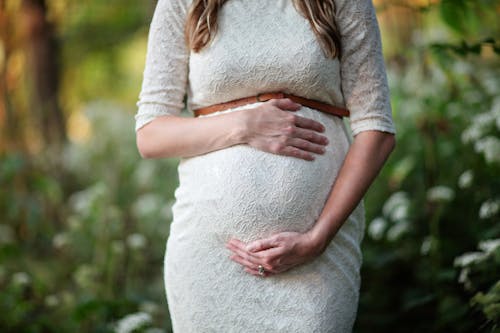Struggling with hair loss after childbirth? Learn why postpartum hair fall happens, how long it lasts, and the best ways to reduce it naturally.
Introduction: Is Postpartum Hair Loss Normal?
Yes — hair fall after pregnancy is extremely common and normal. Most women experience noticeable hair shedding within a few months after giving birth. While it may feel alarming, it’s usually temporary and part of your body’s natural hormonal adjustment.
This article breaks down the causes, duration, and practical remedies for postpartum hair loss, helping you manage it with confidence.
Why Does Hair Fall After Pregnancy?
During pregnancy, high levels of estrogen prolong the hair’s growth phase. That’s why many women enjoy fuller, thicker hair while expecting.
But after childbirth, estrogen levels drop rapidly, causing more hairs to enter the shedding (telogen) phase at the same time. This sudden hormonal shift leads to what’s medically known as telogen effluvium.
When Does Postpartum Hair Loss Start?
Most women begin to notice increased hair fall:
- Around 2 to 4 months after giving birth
- Peaking around the 4th or 5th month postpartum
- Gradually slowing down by 6 to 12 months
It can vary from person to person and may be more noticeable if your hair was thick during pregnancy.
How Much Hair Loss Is Normal After Birth?
On average, people shed 50–100 hairs daily. After pregnancy, that number can increase to 300–400 hairs per day.
It may seem like you're going bald, but this shedding is temporary and doesn’t usually lead to permanent hair loss.
Factors That May Worsen Postpartum Hair Loss
While hormones are the main cause, other factors can worsen hair fall:
- Nutritional deficiencies (iron, zinc, B12, protein)
- Lack of sleep and stress
- Thyroid imbalances (postpartum thyroiditis)
- Sudden weight loss or restrictive dieting
- Anemia or blood loss during delivery
How to Reduce Hair Fall After Pregnancy
Here are some effective and safe ways to manage postpartum hair shedding:
1. Eat a Nutrient-Rich Diet
Focus on foods rich in:
- Protein (eggs, fish, beans)
- Iron (spinach, lentils, red meat)
- Vitamin D and zinc
- Omega-3 fatty acids
2. Take Postnatal Supplements
Consider continuing prenatal or postnatal vitamins, especially those with biotin, iron, and folic acid (after consulting your doctor).
3. Be Gentle with Your Hair
- Avoid tight hairstyles like ponytails or buns
- Limit heat styling (blow drying, straightening)
- Use wide-toothed combs and avoid harsh brushing
4. Switch to Mild, Nourishing Hair Products
Use shampoos and conditioners that are:
- Sulfate-free
- Enriched with natural oils (argan, coconut, rosemary)
- Designed for thinning or fragile hair
5. Scalp Care and Massage
Regular scalp massages improve blood flow and stimulate hair follicles. You can use:
- Coconut oil
- Castor oil
- Rosemary essential oil (diluted)
6. Manage Stress and Get Rest
Stress contributes to hair loss. Try light exercise, yoga, deep breathing, or short naps to support both your mental health and recovery.
When Should You See a Doctor?
Consult a healthcare provider if:
- Hair loss is severe and doesn’t slow down by 12 months
- You notice bald patches or rapid thinning
- You experience fatigue, cold sensitivity, or other signs of thyroid dysfunction
Final Thoughts
Postpartum hair fall can be emotionally difficult, but remember: it’s a temporary phase. With proper nutrition, care, and patience, your hair will gradually return to its normal growth cycle.
Focus on overall recovery, care for your scalp, and don’t hesitate to seek help if it feels excessive or prolonged.


0 Comments